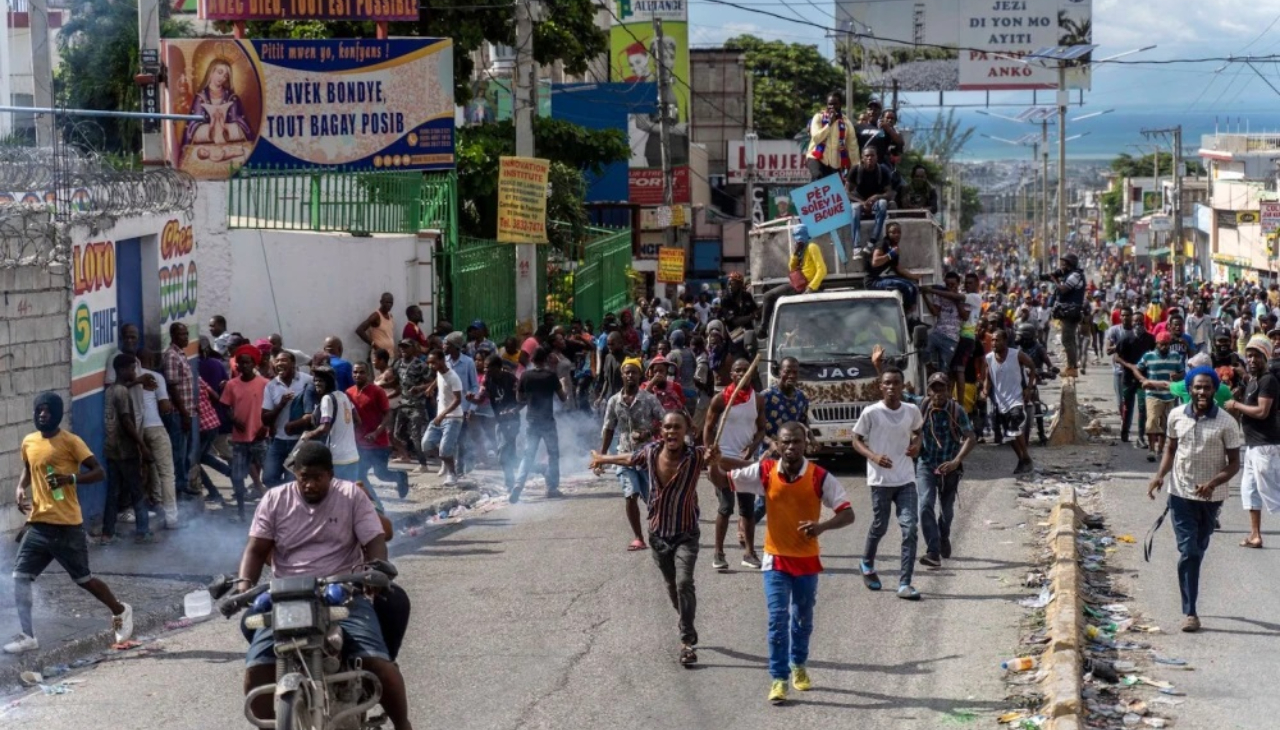
Amid challenges of gang violence and instability in Haiti, a record 4.7 million people are facing acute hunger
A new report by the Integrated Food Security Phase Classification also finds that 19,000 are in catastrophic famine conditions in the Caribbean island.
A record 4.7 million people in Haiti are facing acute hunger, according to a recent report by the Integrated Food Security Phase Classification.
The Integrated Food Security Phase Classification is a global partnership of 15 U.N. agencies and international humanitarian groups, and uses five categories of food security: minimal/none, stress, crisis, emergency, and catastrophe/famine.
According to the analysis, 4.7 million Haitians are in the three worst categories — 2.9 million in the Phase 3 “crisis” category, characterized by food consumption and acute malnutrition; 1.8 million in Phase 4 “emergency” category, in which there are large gaps in food consumption, very high acute malnutrition and excess deaths; and 19,000 in the Phase 5 “famine” category.
The World Food Program and the Food and Agriculture Organization said that food insecurity has increased over the past three years, and 65% of Haitians “are in high levels of food insecurity with 5% of them in urgent need of humanitarian assistance.”
“Harvest losses due to below average rainfall and last year’s earthquake that devastated parts of the country’s south are among the shocks that worsened conditions for people,” Farhan Haq, U.N. deputy spokesman, told ABC News.
This latest report comes in the midst of protests and gang violence in the Cite Soleil district of Haiti's capital of Port-au-Prince, prompted by inflation and political gridlock. The challenge doesn’t end there, however.
"The gang violence has cut off the capital from the food-producing south, and that means that we have now an increase in food insecurity,” Ulrika Richardson, resident and humanitarian coordinator for the U.N. system in Haiti, said in an interview with Reuters.
RELATED CONTENT
Prime Minister Ariel Henry has asked for military assistance from abroad to confront the gangs, while protesters have been calling for Henry's resignation.
In addition, the U.N. is calling for other countries to support Haiti, as the nation’s humanitarian response plan for this year has received less than 30% of the required funding.
The U.S. Agency for International Development (USAID) recently sent a Disaster Assistance Response Team to Haiti to respond to the escalating humanitarian needs.
The World Food Program is seeking $105 million for the next six months, while the Food and Agriculture Organization said it urgently needs around $33 million.
“We all need to be steadfast and focus on delivering urgent humanitarian assistance and supporting long-term development,” said Jean-Martin Bauer, country director in Haiti for the World Food Program.
To this end, Jose Luis Fernandez Filgueiras, The Food and Agriculture Organization’s representative in Haiti, said: “We all need to help Haitians produce better, more nutritious food to safeguard their livelihoods and their futures.”











LEAVE A COMMENT: